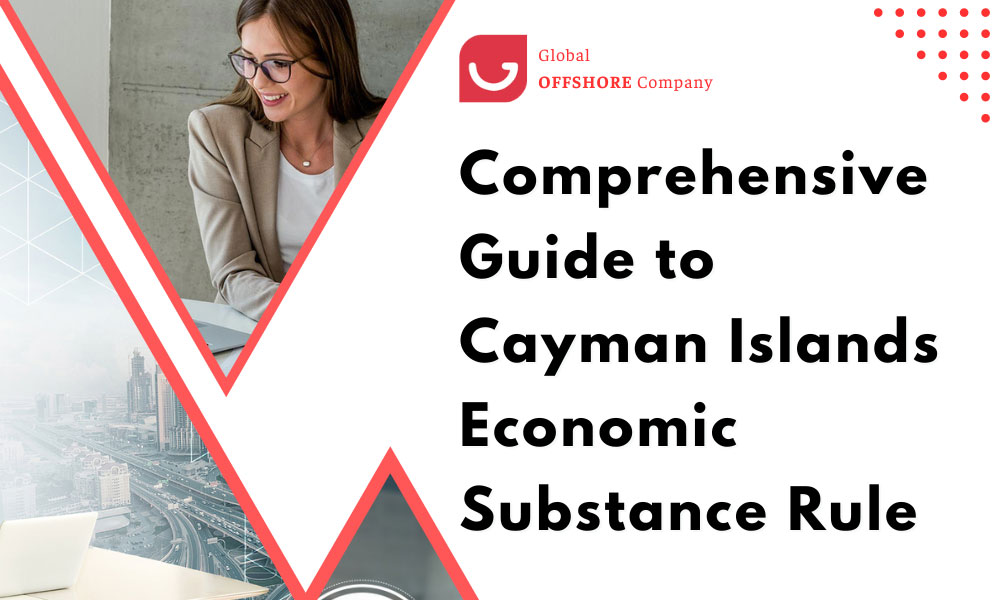Comprehensive Guide to Cayman Islands Economic Substance Rule
As a prominent offshore provider, G.O.C is pleased to present a comprehensive guide to the Cayman Islands Economic Substance Rules, offering insights and clarity for individuals and entities seeking to understand and navigate these regulations effectively.
Introduction to Cayman Islands Economic Substance Rules
In alignment with its international commitments and obligations, the Cayman Islands has established a comprehensive legal framework known as the International Tax Co-operation (Economic Substance) Act (the "Act"). This framework outlines the requirements for legal entities domiciled or registered in the Cayman Islands that engage in specific activities to demonstrate a substantial presence within the jurisdiction. This measure ensures that these entities contribute meaningfully to the Cayman Islands' economic ecosystem.
The Act reflects the Cayman Islands' dedication to its obligations as a member of the OECD/G20 global Inclusive Framework on Base Erosion and Profit Shifting (BEPS), as well as the corresponding requirements set by the European Union for jurisdictions classified as having low or nominal tax rates.
Key Components of the Cayman Islands Economic Substance Rules
1. Annual Notifications and Reporting:
Before January 31st of each calendar year, all legal entities domiciled or registered in the Cayman Islands are required to submit an Economic Substance Notification to the Cayman Islands Registrar. This notification provides details about whether the entity conducted any Relevant Activities (defined further below) during the preceding financial year.

For entities engaged in one or more Relevant Activities, a comprehensive Economic Substance Return must be submitted to the Cayman Islands Tax Information Authority (TIA) within 12 months after the financial year-end. This return evaluates the entity's compliance with the economic substance requirements pertaining to its specific activities
Entities claiming tax residency outside the Cayman Islands and conducting Relevant Activities must submit a Tax Resident in Another Jurisdiction form (TRO Form) to the TIA within 12 months of the financial year-end. This form should include evidence of the entity's tax residency outside the Islands, along with information about its immediate parent, ultimate parent, and ultimate beneficial owner.
2. Understanding Relevant Entities:
Relevant Entities subject to the Economic Substance Rules encompass various legal structures such as Cayman companies (including foundation companies), LLCs, LLPs, registered foreign companies, and partnerships. However, certain entities are exempt from these rules:
- Investment funds and entities used by investment funds for investing or operations.
- Entities tax resident outside the Cayman Islands (subject to certain conditions).
- Entities authorized for local business operations in the Cayman Islands.
It's important to note that Cayman Islands trusts are currently not subject to the Act's provisions.
3. Identifying Relevant Activities:
The Act defines nine specific Relevant Activities that fall under the scope of the Economic Substance Rules. These activities include fund management business, banking business, insurance business, financing and leasing business, shipping business, distribution and service center business, headquarters business, intellectual property business, and holding company business.
The Cayman Islands Tax Information Authority (TIA) offers detailed guidance and sector-specific examples to assist entities in determining whether they engage in any of these Relevant Activities.
4. Meeting the Economic Substance Test:
Entities conducting Relevant Activities are required to satisfy the Economic Substance Test (ES Test) that aligns with their specific activities. The ES Test entails the following criteria:
a. Core Income Generating Activities (CIGA): Entities must carry out core income generating activities related to their Relevant Activities in the Cayman Islands.
b. Directed and Managed in Cayman: Entities should be appropriately directed and managed within the Cayman Islands with an adequate level of strategic decision-making and governance.
c. Operating Expenditure, Physical Presence, and Personnel: Entities must demonstrate an adequate amount of operating expenditure, physical presence (including a place of business or equipment), and a sufficient number of full-time employees or personnel with appropriate qualifications based in the Cayman Islands.
The economic substance requirements vary based on the nature of the Relevant Activity.
5. Special Considerations:
- Outsourcing Arrangements: Relevant Entities may outsource core income generating activities to service providers in the Cayman Islands. However, outsourcing to non-Cayman service providers for core income generating activities is not permitted.
- High-Risk Intellectual Property Business: Entities involved in high-risk intellectual property business face a higher burden of proof. They must demonstrate substantial economic substance within the Cayman Islands, especially in cases where the entity generates income from intellectual property it did not create.
6. Compliance and Record Keeping:
Entities that satisfy the ES Test must maintain relevant records for six years after the financial year ends. These records should pertain to the information required for compliance with the Act.
7. Penalties for Non-Compliance:
Failure to meet the ES Test for a Relevant Activity can result in penalties, with fines up to $12,195. Subsequent failures can lead to higher penalties, reaching up to $121,950. Non-compliance with reporting obligations also incurs penalties.
The Cayman Islands Tax Information Authority has the authority to determine non-compliance and impose penalties accordingly.
Conclusion
Navigating the Cayman Islands Economic Substance Rules requires a comprehensive understanding of the Act's provisions, guidance, and compliance requirements. Our team at G.O.C, in collaboration with experienced local advisors, is dedicated to assisting businesses and individuals in adhering to these regulations effectively. For personalized guidance and support tailored to your unique situation, reach out to our dedicated support team at G.O.C. You can also contact us via email at info@bcincorp.com. With our expertise, you can confidently navigate the economic substance landscape of the Cayman Islands.
Disclaimer: This guide serves as a reference tool and should not substitute legal advice. For tailored guidance, consult G.O.C's customer services.






